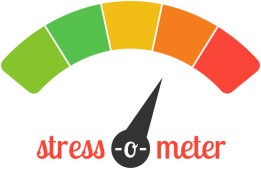 I have heard a frequent refrain from friends and colleagues about election day this year, “I am ready for this to be over.” It rings true for even those of us who love politics. The Presidential campaign is 19 months old; if it were a child it would be climbing on things and learning new words every day. However, as I often suggest, we also need to consider this from a student’s perspective. For the vast majority of our students this is their first time voting in a Presidential election, let’s not dampen their enthusiasm with our exhaustion regarding the election cycle. Student voices matter:
I have heard a frequent refrain from friends and colleagues about election day this year, “I am ready for this to be over.” It rings true for even those of us who love politics. The Presidential campaign is 19 months old; if it were a child it would be climbing on things and learning new words every day. However, as I often suggest, we also need to consider this from a student’s perspective. For the vast majority of our students this is their first time voting in a Presidential election, let’s not dampen their enthusiasm with our exhaustion regarding the election cycle. Student voices matter:
- This year the First-Year Experience program partnered with the Civic Engagement office to register and inform student voters at Chico.
- Today there are signs and people all over campus urging voting in general or supporting particular candidates.
- Our own student groups have been present and visible on campus throughout the election season.
- Across the nation we saw students engaging in dynamic ways. College Republicans were split on their support of Donald Trump this year, so an enthusiastic group formed StudentsforTrump with pop-up groups all over the nation. The group is even mentioned by Trump in speeches, which is a testament to the power of the student voice.
Students often emerge from events like an election with interest in a specific topic, but without a clear path to activism. One such outlet on campus is Civic Engagement which was made a Strategic Priority last year. The campus is looking for a new Director of Civic Engagement right now and it is a great time to get involved. Even if you are not interested in the leadership position, it is worth keeping an eye on the office to learn how to get your students involved in the community. Civic Engagement is not for other students in other classes only during the election, it is for all of us, all the time.
Dr. Sara Cooper has provided additional Book in Common Material. Check out this section of the CELT page for regular synopsis updates, discussion questions, and other resources.
Got feedback on this tip? Got an idea for a tip? Send it along. Check out our new and improved wordpress site here.
Don’t forget to subscribe to the Caffeinated Cats podcast! Our second episode of the Fall is out now and our third will be up shortly! Mary, Tracy, and I explore Chico traditions and college athletics. Link to it on soundcloud, itunes, overcast, or follow the podcast on facebook.



 tress seems everywhere this time of the semester. The academic year is close to an end which means student concerns about grades and graduation, too many meetings crammed into the day, celebrations that sometimes feel like obligations, and this year we are all making sense of the strike and what it might mean for ourselves and our students. Speaking of students, the stress of the end of the year can be even greater for them as they deal with a host of transitions many of us moved on from years ago.
tress seems everywhere this time of the semester. The academic year is close to an end which means student concerns about grades and graduation, too many meetings crammed into the day, celebrations that sometimes feel like obligations, and this year we are all making sense of the strike and what it might mean for ourselves and our students. Speaking of students, the stress of the end of the year can be even greater for them as they deal with a host of transitions many of us moved on from years ago. It was not quite on the level of Harry Potter staring down Voldemort, but it was close.
It was not quite on the level of Harry Potter staring down Voldemort, but it was close. Bring your class donuts or ask your administrative support person how his/her day is without immediately cutting them off to ask for a rush order copy job. Sometimes simple kindness gets us through the most challenging times.
Bring your class donuts or ask your administrative support person how his/her day is without immediately cutting them off to ask for a rush order copy job. Sometimes simple kindness gets us through the most challenging times.
 Most of us have used stories from our personal lives to help illustrate a concept and know the power those stories can have to build trust, make connections, and revive student interest in a boggy lecture. I’ve also seen warm and personal video introductions in online courses—including several with cats—with similar effects.
Most of us have used stories from our personal lives to help illustrate a concept and know the power those stories can have to build trust, make connections, and revive student interest in a boggy lecture. I’ve also seen warm and personal video introductions in online courses—including several with cats—with similar effects.